Tool Management System Reduces Costs, Downtime
Ineffective tool management can drive up costs and reduce efficiency even at the most high-tech, successful shops. With WinWare’s CribMaster Accu-Cab inventory management system, this aerospace manufacturer reduced costs, downtime and stock-outs resulting from missing or misplaced tools. In fact, meeting its return on investment (ROI) goals took only a few months.
Share





As president of Nu-Tech Industrial Sales, a Brea, California-based company that focuses on inventory management and maintenance, repair and operations (MRO), Robert Page knows first-hand the consequences of poor tool management. Searching for missing tools can waste valuable production time, and those that are never found add to inventory costs. Recently, Mr. Page helped one client struggling with these issues revamp its tool management practices by implementing the CribMaster inventory management system from WinWare (Marietta, Georgia). With this point-of-use tool management and distribution system, the customer reduced downtime and stock-outs resulting from lost tools and realized a 70-percent cost savings in indirect
materials.
That customer, Allied Mechanical, is an Ontario, California-based manufacturer of precision products used in the commercial, government and aerospace markets. Founded in 1951, the company offers machining, fabrication, inspection, deburring, assembly and other services at all stages of the product lifecycle from prototyping through production. Among its notable customers are Boeing, Honeywell, Northrup Grumman and Lockheed Martin. In addition to a range of HMCs, VMCs, vertical boring mills and turning machines, the company’s 110,000-square-foot facility houses 130 employees who work in two shifts.
Despite an emphasis on quality and precision, the company’s tool management practices were anything but precise. Tools were scattered haphazardly throughout various drawers, carts and tabletops, prompting employees to spend hours searching for needed items. "We needed to find a way to reduce the amount of perishable tooling and eliminate the waste," says Mark Slater, president of Allied Mechanical.
Mr. Page had seen such problems before, and he was quick to recommend the CribMaster inventory system to create a leaner inventory and reduce costs. Developed by WinWare, the system is designed to manage tools, MRO, indirect materials and other mobile assets through radio frequency identification (RFID) tags. After examining the full suite of available systems, Allied chose the Accu-Cab model along with two helix-style vending machines.
The company installed the Accu-Cab in its deburring area because it could easily handle both issue and return of the variety of items used in that part of the shop. The Accu-Cab can also accommodate the shop’s larger items, while the vending machines are used primarily for inserts, drills and other small items. According to the company, the Accu-Cab is easy to use—an employee simply swipes a badge, opens the door and removes needed items.
Each item is identified with a passive Gen2 RFID tag, and CribMaster automatically adjusts inventory when an item is removed. This keeps employees accountable for the tools they use, and the time spent using a tool is monitored through the tracking capabilities of the unit’s inventory control software. This software provides more than 190 standard reports that track virtually every aspect of indirect material management, inventory control and replenishment needs. With each tool managed and logged, the tool tracking software can report what is missing, how long it has been missing, and who is accountable.
With a height of 75 inches and a footprint measuring 58 inches wide by 32 inches deep, the unit is constructed of 16-gauge steel and features configurable shelving that can accommodate a variety of different-sized items. It is also equipped with item reservation, predictive ordering and a complete work order system that allows tracking inventory to work orders. Other features include a touchscreen interface; direct e-mail or EDI communication with suppliers; the ability to configure custom reports with Crystal Reports; and total kit tracking and replenishment process tracking.
Allied began to see results almost immediately after installing the system. In addition to reducing downtime, stock-outs and the amount of perishable tooling, the company quickly met its return on investment (ROI) goals by saving more than $40,000 per month in perishable costs. "We’ve had less theft and better utilization of tools," Mr. Slater says.
Related Content
Toolpath Improves Chip Management for Swiss-Type Lathes
This simple change to a Swiss-type turning machine’s toolpath can dramatically improve its ability to manage chips.
Read MoreFinding the Right Tools for a Turning Shop
Xcelicut is a startup shop that has grown thanks to the right machines, cutting tools, grants and other resources.
Read MoreHow to Troubleshoot Issues With Tool Life
Diagnosing when a tool is failing is important because it sets an expectation and a benchmark for improvements. Finding out why gives us a clue for how to fix it.
Read MoreBriquetting Manufacturer Tools Up for Faster Turnaround Times
To cut out laborious manual processes like hand-grinding, this briquette manufacturer revamped its machining and cutting tool arsenal for faster production.
Read MoreRead Next
Registration Now Open for the Precision Machining Technology Show (PMTS) 2025
The precision machining industry’s premier event returns to Cleveland, OH, April 1-3.
Read More5 Rules of Thumb for Buying CNC Machine Tools
Use these tips to carefully plan your machine tool purchases and to avoid regretting your decision later.
Read MoreBuilding Out a Foundation for Student Machinists
Autodesk and Haas have teamed up to produce an introductory course for students that covers the basics of CAD, CAM and CNC while providing them with a portfolio part.
Read More
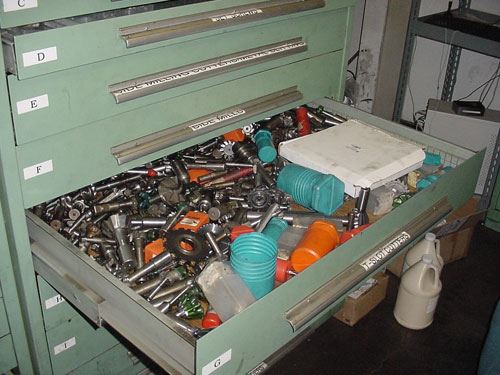
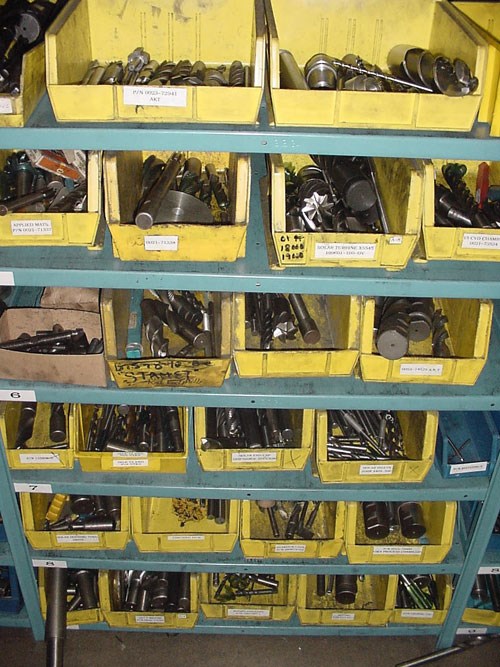
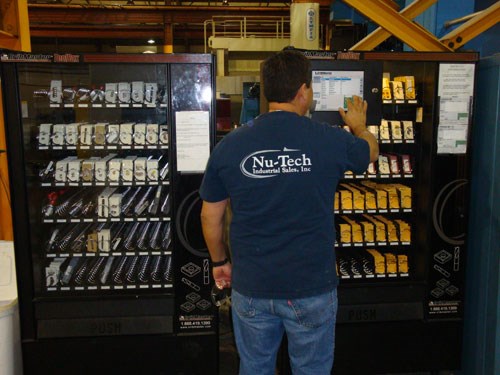
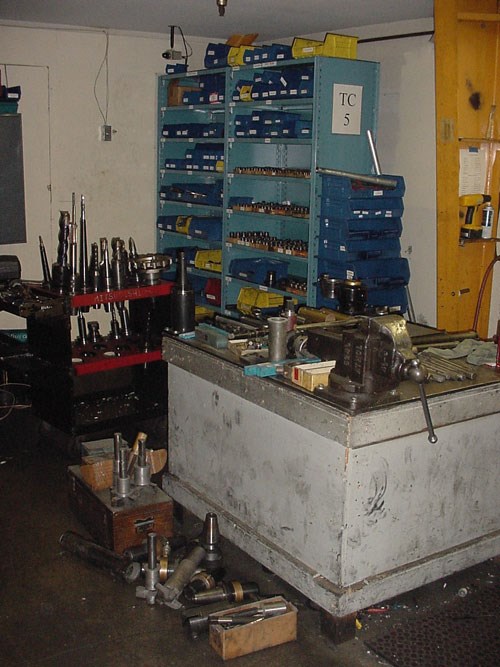
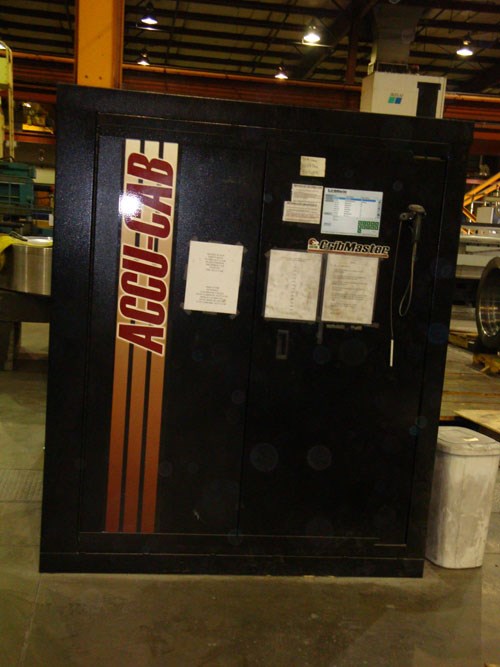
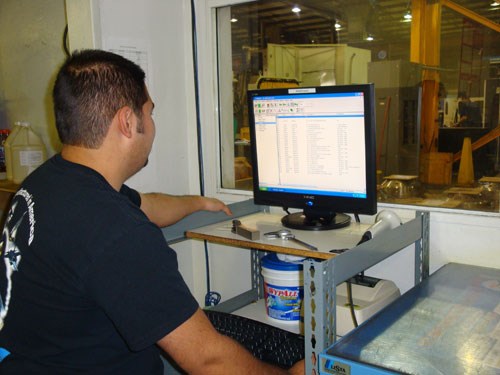

















.png;maxWidth=300;quality=90)






.jpg;maxWidth=300;quality=90)



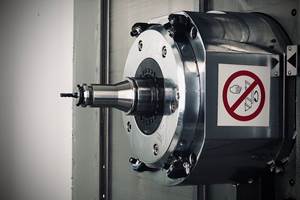




.png;maxWidth=970;quality=90)